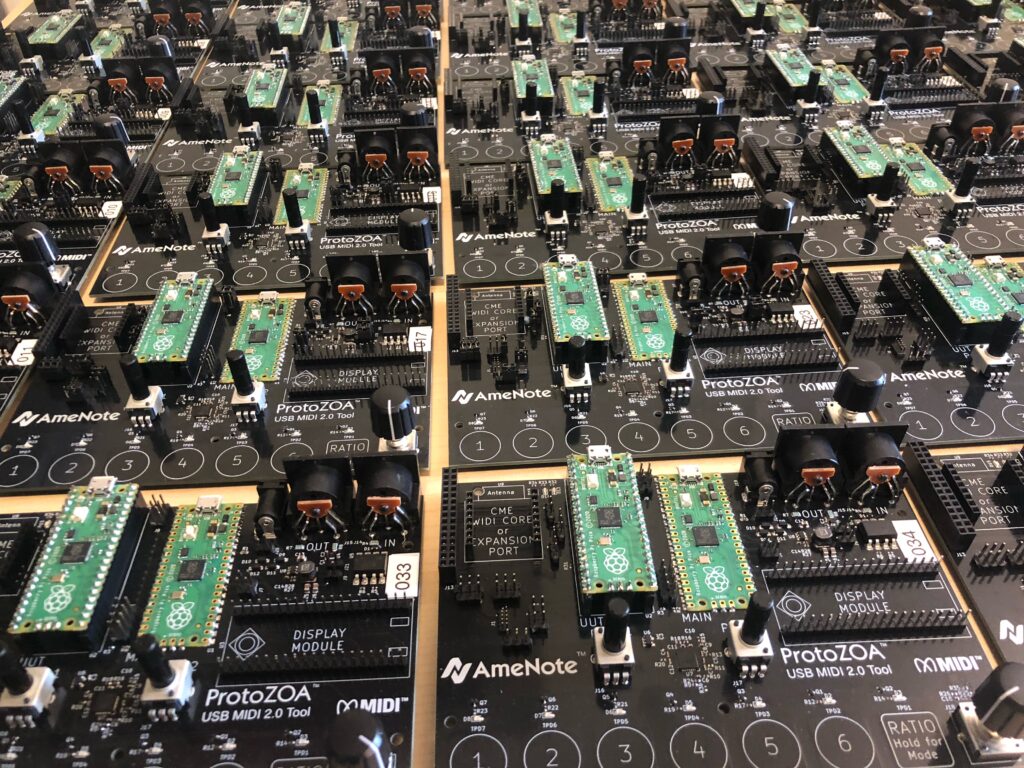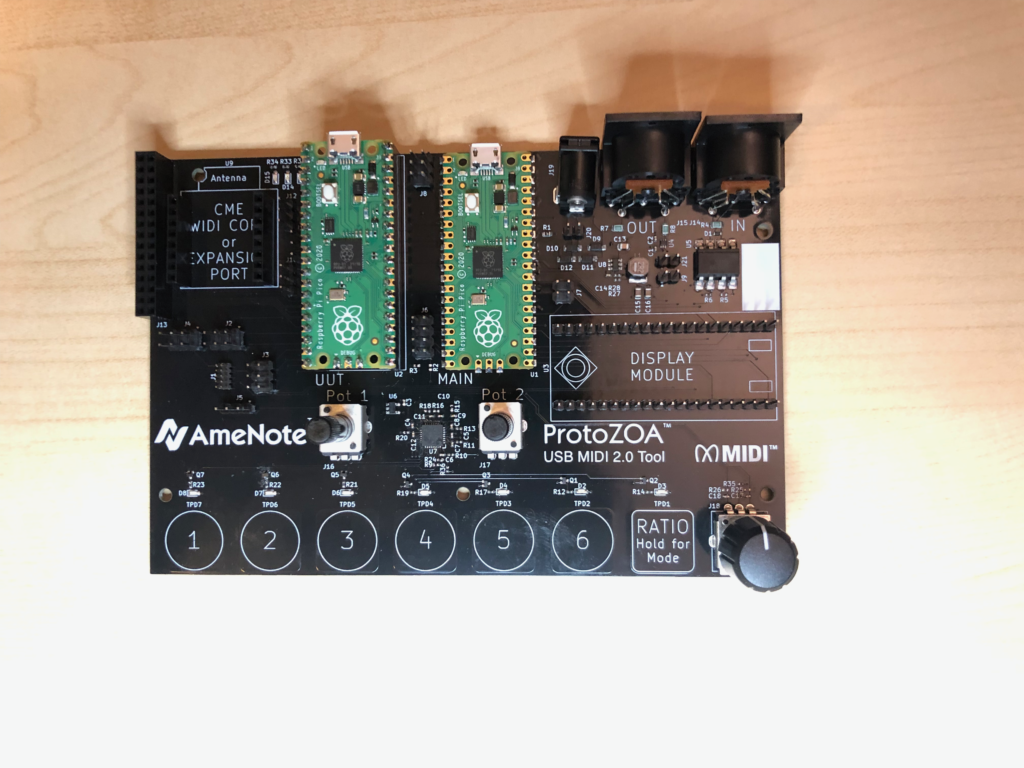A versatile prototyping tool for MIDI 2.0 "ProtoZOA". Developers can leverage MIDI 2.0 interfaces and functionality provided by open source firmware in their own hardware and software solutions.
This dual-RP2040 development platform, which is based on tinyUSB, is free and open source for MIDI Association members.
The ProtoZOA prototype board, developed by MIDI expert AmeNote, is powered by two Raspberry Pi Pico microcontroller boards, and one unit is provided free of charge to all MIDI Association members. It is intended for people wishing to build around the new MIDI 2.0 standard.
In a paper published in October 1981, Dave Smith and Chet Wood of Sequential Circuits invented MIDI, the Musical Instrument Digital Interface. MIDI was created to provide a way for cross-vendor intercommunication in the proprietary electronic synthesizer business, and it has subsequently taken over as the de facto standard.
But because it's built on technology that's 40 years old, the MIDI Association thinks MIDI 2.0 is overdue. While maintaining backward compatibility with conventional MIDI hardware and software, MIDI 2.0 offers a number of improvements over its predecessor, including bidirectional communication, a new packet format for high-speed transports, a specification for capability queries, and support for wired and wireless media. It was first teased in January 2019 and officially unveiled at the Winter NAMM Show in early 2020.
ProtoZOA from AmeNote fits with the MIDI Association's current efforts to get developers to adopt the new standard. Adafruit alerted us to the ProtoZOA, a custom development board with two Raspberry Pi Pico boards and RP2040 microcontrollers that implement MIDI 2.0 with the capability discovery features, USB connectivity, the new universal packet format, MIDI 1.0 to 2.0 translation with MIDI 1.0 input and output ports, and expansion capabilities for Bluetooth Low Energy (BLE) wireless MIDI, SPI, and UART connectivity, as well as an optional LCD panel.
The ProtoZOA, which is built on the tinyUSB stack, combines two Raspberry Pi Picos—one as the main driving device and the other as a PicoProbe-based debugging tool—to enable developers to test out MIDI 2.0 at its most fundamental levels. The source code, on the other hand, is made freely accessible so that anybody can use it as a starting point to create their own MIDI 2.0-compliant devices.
AmeNote states that it "chose not to retain our leadership experience in USB MIDI 2.0 technology to ourselves as a competitive advantage," instead choosing to share it with other developers, including prospective rivals, in order to accelerate the commercialization of MIDI 2.0 devices.
The board is now only accessible to members of the MIDI Association and/or the Association of Musical Electronics Industry, however, there is one catch (AMEI). A single ProtoZOA can be requested by members for free, together with all the source code, while additional boards cost $250 apiece. AmeNote has stated that it intends to provide the ProtZOA to the general public in the fourth quarter of 2022 but notes that the cost has not yet been decided. You may find more details on the AmeNote website.


















0 Comments